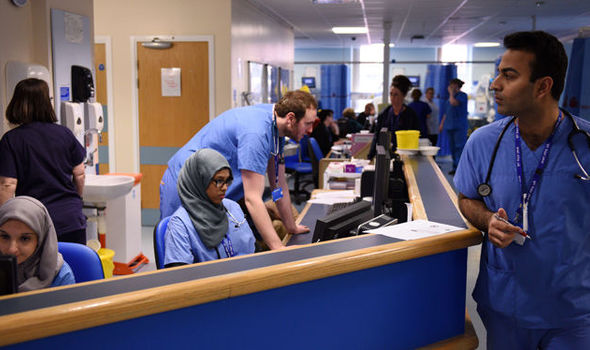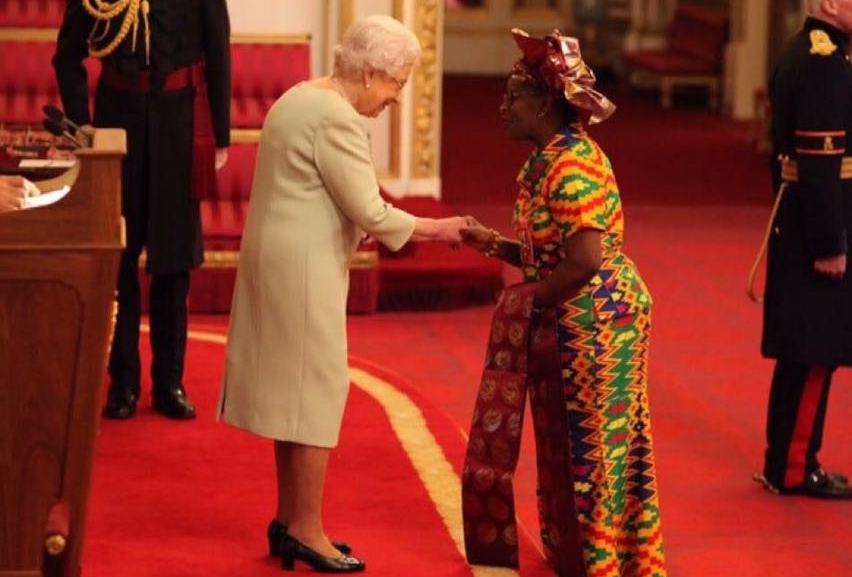2016 figures indicate that there are 2,289 Ghanaian health staff under the United Kingdom’s (UK) National Health Service (NHS).
Ghana contributes the 15th most human resources to the UK’s NHS and other African countries feature prominently, with Nigeria contributing 5,040, South Africa contributing 1,626 and Egypt contributing 887.
UK nationals contribute 971,878 persons to NHS staff, which range from cleaners to midwives to doctors.
These figures will be unsurprising, considering the brain drain migration of health workers from low and middle-income to high-income countries.

The World Health Organisation predicts that the current global shortage of over-7 million health workers will increase to 12.9 million by 2035, with the poorest countries in the suffering the most from these shortages.
Sierra Leone, known to have one of the weakest health systems in the world, contributes 512 workers to the NHS. In 2010, the country had 136 doctors and 1,017 nurses, translating to one doctor for approximately every 45,000 people.
In the year 2014, when the UK’s NHS was voted the world’s strongest, it had 27 doctors and 103 nurses trained in Sierra Leone working for it.
Ghana’s deficit
For the Ghanaian context, the usefulness of Ghanaians to the UK’s health sector is highlighted in the 2006 estimation indicating that the money saved by the UK through the recruitment of Ghanaian health workers may have exceeded that which it gave to Ghana in aid for health.
Ghana, on the other hand, continues to struggle with a deficit of critical health workers. An assessment by the Ghana Registered Nurses and Midwives Association revealed that Ghana will need not less than 38,000 Nurses and Midwives to fill the nurses-patient ratio.
WHO standards peg 40 nurses for every 10,000 patients as an acceptable ration, but Ghana’s is said to be 22 nurses for every 10,000 people.

Deficits abound for doctors too, with one doctor attending to about 10, 450 patients – a far cry from the one doctor to 5000 patients ratio per the recommendations of the Commonwealth and the 1 doctor to 1,320 patients per the recommendations from WHO.
The role migrants play in the UK health system had led some to advocate for financial compensation for source countries.
The NHS would be “in dire straits” without migrant workers, according to one of the UK’s senior economists.
The 2010 WHO code of practice on the international recruitment of health personnel attempts to deal with the brain drain but it does not mandate financial compensation for source countries.
Instead, Member States are urged to discourage active recruitment of health personnel from developing countries facing critical shortages of health workers.
Acclaim for migrants
Some of these migrant health workers have risen to the pinnacle of their profession, including Ghana’s Cecilia Anim, who has received a CBE, (Commander of the Most Excellent Order of the British Empire) by the Queen of England as part of the 2017 New Year Honours list.

Cecilia Anim is the President of the Royal College of Nurses, a position she has held since 2014. Her election as the Royal College of Nurses President was a landmark moment, as she became its first black president.
–
By: Delali Adogla-Bessa/citifmonline.com/Ghana

